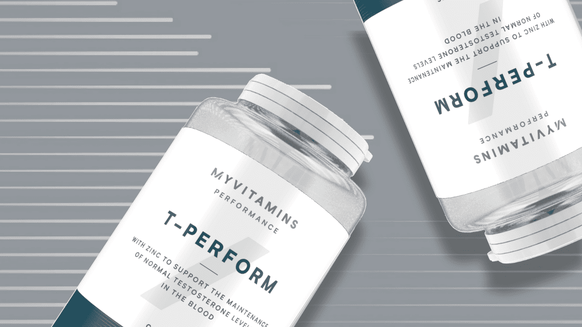The Benefits Of Consistently Taking Vitamins

Vitamins and minerals are vital micronutrients we need for many different functions within the body. Obtaining these essential nutrients consistently can provide incredible benefits for our overall health and wellbeing. Read on for our guidance on consistently taking vitamins, the benefits of doing so, and how to make a habit out of it.
Why Should I Take Vitamins?
In today’s busy, modern society, we don’t always have time to put our health first. Putting together a balanced meal and ensuring you’re getting your daily fruit and vegetables can be a chore. In fact, research suggests that only 28% of adults eat their recommended five a day. (1) With fruits and vegetables being a major source of most crucial micronutrients, a large proportion of adults may suffer from deficiencies. 2
Our bodies need a certain amount of each vitamin and mineral to function. The Reference Nutrient Intake (RNI) suggests the amount of each nutrient we should aim to obtain every day. Obtaining adequate amounts of each micronutrient allows for processes such as energy production, immune function, bone health and support for a healthy cardiovascular system.
A healthy, balanced diet is always recommended for obtaining as much of your recommended daily micronutrient intakes as possible. However, supplements are an easy way to ensure we are meeting all of our needs and reducing the risk of nutritional shortfalls.

Why Is It Important To Take Vitamins Consistently?
In line with the recommended daily intakes for different nutrients, vitamin supplements are formulated with a recommended dosage. It’s important we adhere to this recommendation in order to get the best results possible from the supplement. Likewise, following this guidance reduces the risk of harm associated with ingesting too much of a given nutrient.
Receiving a consistent supply of nutrients means we are slowly increasing the concentration of that nutrient within our bodies. Following a micronutrient deficiency, it may take several weeks to rebuild the insufficient nutrient in the body. Forgetting to take your supplement on the odd occasion is unlikely to affect this, but consistently forgetting may delay this process further. Furthermore, water-soluble vitamins such as vitamin C and B vitamins are not stored in the body. This means that inconsistent supplementation of these nutrients may affect the efficacy of the supplement.
Benefits Of Supplementation To High-Risk Groups
Daily supplementation can be of great benefit for overall health and wellbeing in the general public. However, routine supplementation with vitamins and minerals may also play an important role for high-risk groups.
Women of a child-bearing age have a higher risk of iron deficiency. Older adults with an osteoporosis diagnosis may require higher levels of calcium and vitamin D, beyond that which is available through diet. Similarly, vegetarians and vegans are more likely to be deficient in vitamin B12. Individuals with conditions that reduce the ability to absorb certain nutrients, such as Crohn’s disease, may also benefit from supplementation.

How Can I Remember To Take My Vitamins?
Adding daily supplements into your health and wellness routine is a fantastic way to reduce your risk of nutritional shortfalls and improve your health and wellbeing. However, remembering to take your supplements may be a challenge.
Our top tips for remembering are:
Practice makes perfect. Get into the habit of taking your supplement at the same time every day, even if this requires setting an alarm or an app notification at first. This can be implemented within an established morning routine. Once a habit is formed it’s a lot easier to stay on track in the long run. 3 Show them off. Keep your supplements on show in a place you visit daily. For example, keep your vitamins on your desk, near your toothpaste, or next to your morning cereal. Try a pillbox. A pillbox can be used to organise supplements or medication by day and time. This can help keep supplements organised and provide visual cues as to whether your daily dose has been taken.
Do I Need To Take My Vitamins At The Same Time Every Day?
Generally, the time that supplements are taken is not of importance; so long as your supplements are taken on a daily basis. However, certain vitamins function best, with the lowest risk of adverse reaction, when taken at certain times:
Water-soluble vitamins such as vitamin C and most B vitamins are best taken in the morning. Fat-soluble vitamins, such as vitamins A, D, E and K are best absorbed when consumed alongside a source of fat. Therefore, consuming these supplements with a meal may be beneficial for maximum absorption.
Vitamin supplementation is an easy practice to ensure you are meeting all nutritional requirements within your day. When taken consistently in a daily wellness routine, vitamin supplementation may be the next step towards a healthier you.
Learn more about the importance of vitamins and minerals in our blog:







